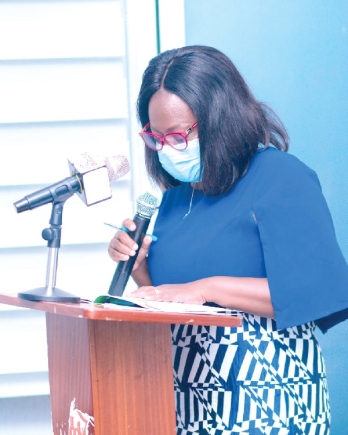Deposits of members increased significantly from GH¢1,207,899,001 in 2023 to GH¢1,619,540,338 in 2024, the Ghana Co-operative Susu Collectors Association, he stated.
That, it said, represented an impressive growth of 34 per cent.
“This performance is a testament to the deepening trust of our clients and the strengthening savings culture across the country.
“During the same period, a total of GH¢1,509,899,291 was paid to clients as withdrawals, with total susu balances standing at GH¢224,096,295,” the General Manager of the GCSCA, Esther Odjawo, said in her report at the 15th Annual General Meeting.
It was on the theme: Digital Transformation & Accelerated Growth for Susu Enterprises in Emerging Markets”
Balances
In addition to the association’s cash balances, Ms Odjawo said a “comprising funds on hand and in banks grew from GH¢120.5 million to GH¢213.1 million, representing a 76.8 per cent increase – a clear indication of improved liquidity and financial health”
Beyond its financial milestones, she said the association’s impact continued to extend to people and communities and that clients grew from 897,484 IN 2003 to 957,294 in 2024, marking a seven per cent increase and demonstrating “our sustained contribution to financial inclusion”
Notably, she said women continued to play a leading role with 65 per cent of the total membership of susu collectors being females.
“On the employment front, the number of jobs created rose from 2,048 in 2023 to 2,143 in 2024, representing a five per cent increase and underscoring our roles in livelihood empowerment,” she said.
Era
In his address, the President of the GCSCA, William Adu Awuku, said in an era where technology was reshaping financial services globally, “our ability to embrace digital tools will determine how well we expand access, improve efficiency and remain competitive.
He said digital transformation presented the association with an opportunity to modernise the susu system and scale its impact, reach more clients, empower collectors and position members as key players in the emerging markets.
“The year 2024 brought both opportunities and headwinds for our association. The broader economic environment, characterised by high inflation, persistent currency depreciation and rising operational costs, significantly strained households, businesses and institutions.
“These conditions tested our capacity to deliver value to members and communities,” he said.
